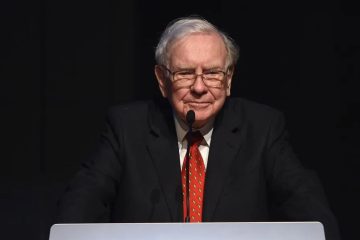You Can Now Invest in Music Through Shares

The royalties from musicians like Beyoncé, Taylor Swift, and pop-rock group OneRepublic are backing a startup’s securities offering. Making music investment accessible to everyone is its main objective.
JKBX, whose name means “jukebox” in English, launched its new marketplace last week following SEC approval of its initial offering. The website allows individual investors to purchase a portion of the revenue generated by dozens of songs, which may be thought of as bonds backed by beats.
The 2009 Beyoncé single “Halo” and Adele’s “Rumour Has It” are two of the tracks on the list. Notable artists whose music may be found on JKBX also include Major Lazer, Stevie Wonder, and U2.
The debut album by JKBX featured numerous tracks that were taken from Ryan Tedder’s 2021 hit library. As an example, in the instance of Swift’s “Welcome to New York,” which was written by both Swift and Tedder, the producer sold the rights to his income, while the performer chose not to do the same. Only this 2014 single is Swift’s music featured on JKBX.
David Bowie’s infamous Bowie Bonds deal in 1997 was the latest in decades of Wall Street transforming music rights into financial instruments. Music royalties have received hundreds of millions of dollars from prominent institutional investors like KKR and Apollo Global Management.
Now JKBX is trying to help the average guy get these kinds of bargains. The company was established in 2022. Chief Executive Officer Scott Cohen stated that the long-term goal is to list additional investments and convert music royalties into a separate asset class. According to him, JKBX will be popular among investors looking to diversify their holdings and among music lovers who prefer the concept of owning a portion of their beloved songs.
Cohen described it as a “fan product” in addition to a financial offering.
Music rights holders can use JKBX’s platform to sell securities backed by their royalties to investors. It generates revenue by carrying out financial transactions.
The process is as follows. Assume you invest $6.78 in the sound-recording rights to Beyoncé’s “Halo” through JKBX. If you own those shares, you can get a cut of the fees paid out to the rights holder every three months. Streaming services like Spotify, music sales, royalties from satellite radio, or use fees from movies and TV series are all potential sources of such money. The exact amount of the payments may change every quarter. Recent calculations by JKBX have resulted in a yearly yield for the “Halo” shares of approximately 3%.
Most of the entries in JKBX’s first harvest have yields between three and four percent. With money-market funds paying rates of around 5%, these yields aren’t very appealing.
If an older song is included in a hit TV show or becomes famous on TikTok, the royalties and streams could skyrocket, as Cohen pointed out. By using Kate Bush’s 1985 song “Running Up That Hill (A Deal With God)” in Netflix’s smash series “Stranger Things,” JKBX investors are essentially betting that an oldie could enjoy a rebirth of listener interest.
The lack of a trading feature is one limitation of JKBX. At this time, song shares may only be purchased; they cannot be sold. After more regulatory barriers are cleared, the business expects to enable buying and selling later this year.
According to those in the know, JKBX has also been in discussions with brokerages like Webull on the possibility of listing its royalty shares on their websites. This would allow investors to trade them in the same way as stocks and options.
Even while JKBX isn’t the first company to try to offer music holdings to small investors, there’s no assurance that it will succeed. The creation of token-based markets for music royalties has been attempted by several blockchain ventures, but none of them have achieved significant success. Public, a website for stock investments, gave its users a chance to own a piece of the Shrek film franchise’s score in October. Public has not yet released any other tracks.
JKBX claims it can list a consistent flow of high-quality songs that will entice investors and fans thanks to its connections in the music business. Sam Hendel, a partner at the family office Dundee Partners, which has invested in the entertainment industries (including film, television, and Broadway productions), is both the company’s founder and its biggest stakeholder. The digital-media ventures arm of the record label BMG owner, Germany’s Bertelsmann, is one of the other investors in JKBX.
Before joining JKBX, Cohen was an executive at Warner Music Group and a co-founder of The Orchard, an early digital music distribution company now owned by Sony.
Cohen remarked that “someone’s getting paid” whenever a song was played. “Then we asked ourselves, ‘Why can’t it be the average person, the retail investor?'”









